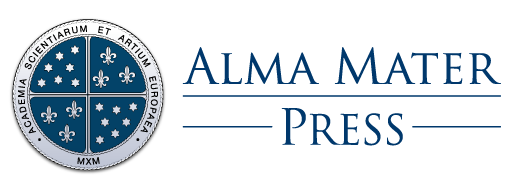Lutheran Theological Education in an Ecumenical and Multicultural Setting: Public Use of Archives and Perceptions at the Lutheran Theological Institution (LTI) Library, Pietermaritzburg, South Africa
DOI:
https://doi.org/10.33700/2670-451X.26.2.215-224(2016)Keywords:
Exhibitions, publications, outreach, ICA Archives Day, LTI LibraryAbstract
This paper reports on the findings of a study that was carried out in 2014 at the Lutheran Theological Institute (LTI) Library on public use of archives and user perceptions about archives in the library. Archival registration data in the form of user statics, library membership statistics, annual reports and a questionnaire were the primary sources of data. The study established that users were generally aware of what archives are, that the most consulted archival material were church and diocese minutes and that amongst the recommended strategies to promote visibility for the archives were exhibitions, guided tours, publications, an open day on archives and the establishment of a friends of the archives group.
Downloads
References
Blais, G. and Ennes, D. (1990-91). From paper archives to people archives: public programming in the management of archives. Archivaria, 31, pp. 101-113.
Bradsher, J. G. and Ritzenthaler, M. L. (1988). Archival exhibits. In: Bradsher, J. G. (ed). Managing archives and archival institutions, pp. 228-240. London: Mansell Publishing Limited.
Duff, W. M. and Cherry, J. M. (2008). Archival orientation for undergraduate students: an exploratory study of impact. American Archivist 71, (Fall/Winter), pp. 499-522.
Ericson, T. (1990-91). Preoccupied with our own gardens: outreach and archivists. Archivaria 31, pp. 114- 122.
Freeman, E. (1984). Education programs: outreach as an administrative function. In: Daniels, M. F. And Walch, T. (eds), A modern archives reader: basic readings on archival theory and practice, pp. 289-296. Washington, D. C.: National Archives and Records Service.
Garaba, F. and Zaverdinos, A. (2014). The Evangelical-Lutheran Church in South Africa: an introduction to its archival resources held at the Lutheran Theological Institute (LTI) Library, and the challenges facing this archive (Part One). Missionalia: Southern African Journal of missiology, 42, (1-2), pp. 5-28.
Harris, V. (2000). Exploring archives: an introduction to archival ideas and practice in South Africa. Pretoria: National Archives of South Africa.
Hunter, G. S. (2003). Developing and maintaining practical archives: a how-to-do-it manual. New York: Neal- Schuman Publishers, Inc.
International Archives Day. (2014). WordPress Theme. Available at: http://www.internationalarchivesday.org/wordpress/ (accessed on 20.09.2014).
Jeremy, J., Woodley, E. and Lupke, L. (2008). Access and reference services. In: Bettington, J., Eberhard, K., Loo, R. and Smith, C. (eds.), Keeping archives, pp. 351-378. 3rd ed. Canberra, ACT, Australia: Australian Society of Archivists, Inc.
Millar, L. A. 2010. Archives: principles and practices. London: Facet Publishing.
Mnjama, N. (2009). Archival programming in the digital era: the challenge for ESARBICA archivists. Paper presented at the XX Bi-Annual East and Southern Africa Regional Branch of the International Council on Archives (ESARBICA) General Conference on “Documentary Heritage Management in the Digital Age: Beauty and the Beast”, Namibia, National Archives of Namibia (Windhoek), 1-3 July 2009.
Ngoepe, M. and Ngulube, P. (2011). Assessing the extent to which the National Archives and Records Service of South Africa has fulfilled its mandate of taking archives to the people. Innovation: journal of appropriate librarianship and information work in Southern Africa, 42, pp. 3-22.
Ngulube, P. (1999). The marketing of archival services and products in east and southern Africa: opportunities for survival in the next millennium. ESARBICA journal: journal of the East and Southern Africa Regional Branch of the International Council on Archives, 18, pp. 19-25.
Pederson, A. (1983). User education and public relations. In: Ellis, J. (ed). Keeping archives, pp. 306-349. 2nd ed. Pourt Melbourne, Victoria: D W Thorpe.
Pederson, A. (2008). Advocacy and outreach. In: Betttington, J., Eberhard, K., Loo, R. and Smith, C. (eds.), Keeping archives, pp. 435-474. 3rd ed. Canberra, ACT, Australia: Australian Society of Archivists, Inc. Roe, K. D. (1988). Public programs. In: Bradsher, J. G. (ed). Managing archival institutions, pp. 218-227. London: Mansell Publishing Limited.
Theimer, K. (2014). The role of archives in a digital society: now is what matters. Archivaria, 78, pp. 145- 147.
Van Rooyen, K.M. (1996). A performance evaluation of the Pietermaritzburg Cluster of Theological Libraries (PCTL) in order to determine whether it meets the demands of its users. Master of Information Studies thesis. Pietermaritzburg: University of Natal. School of Human and Social Studies, Information Studies Programme.

